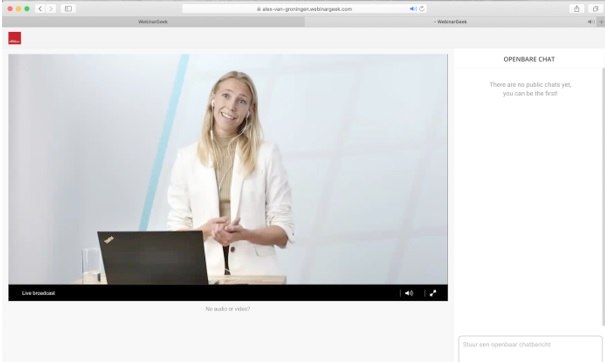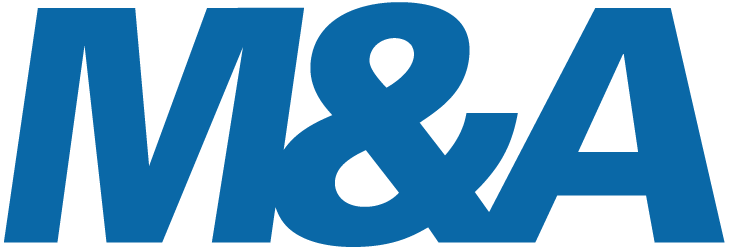Valuable Venture Capital lessons in times of crisis

Moderator:
Laura Cramer (Investment Manager Social Impact Ventures)
Goal of the webinar: Sharing experience in dealing with a global crisis.
Central Question: How did you manage former crises?
Introduction
We are in challenging times, what good can come out of this crisis? How do we deal with it? Take these tips from two men who’ve had their feet wet before. Sake Bosch, winner of multiple M&A Awards for Best Venture Capital Manager. Bosch has over 20 years of experience and has managed investments and funds through multiple crises. And Menno van der Marel, an entrepreneur who started a business, Fox-IT, in the middle of a crisis and made it a success. To prove that they’ve had their share of lessons learned they both brought an anecdote to the table.

“You never know where you are in the cycle.”
Sake Bosch, Prime Ventures

Sake: “Right after I started Prime Ventures back in 1999, I invested in a company which would be formally closed on January 2000. I had just installed myself on the board, when the founder came to me and said: ‘I have a new plan, I want to merge with another company and take the new business public’.” They pitched their idea to several investment banks, everybody liked it. “At one point the CEO of ING called me and asked me to give him the job,” says Sake. But they choose Lehman Brothers.
Lehman brought in a dozen bankers to prepare the IPO. The public offer was planned for the summer of 2000. Over one hundred new employees where hired. Sake felt good about the whole transaction; “’this is a great deal’ I thought, we will be doubling the fund in 6-month time”.
Unfortunately, in May 2000 the stock market dropped and in June Lehman pulled out. “They only stayed on board because in fact they had nothing else to do,” Sake recalls. “The situation wasn’t as sunny anymore”, he couldn’t pay July’s salaries.
This was a bitter pill for everyone involved. After a tough period of restructuring, “we had to let go half of our staff in one-month” they found a 10 million euro’s fund. Looking back this was quite an achievement. Eventually the company was sold in 2018 for 40 million. “With hindsight we could have sold it earlier for 35 million, right before we started raising the needed funds,” says Sake.
Sakes lessons learned
Honor the Cycle: When you are in a crisis, especially a financial crisis, you never know where you are in the cycle. Remember that you are, as an investor, very dependent of the financial markets. And financial markets are by default cyclical. I learned that lesson the hard way.
Sell when you can: So, since the fact is that financial markets are cyclical and volatile, my advice is to sell when you can, or have enough cash to grow the company through the bad weather.
Respect each other’s blood type: Investors and entrepreneurs are of another blood type. Founders are often optimistic, especially when they are in the fundraising mode. Fundraising is a commercial process; it is about storytelling and often also about exaggeration. As a VC you can and should bring the expectations back to a realistic level without losing the passion and enthusiasm of the founder. By nature, the VC will be more conservative than the entrepreneur.
Conservative is the better option: Overall it is probably better to be conservative. It gives you more control of your destination.
Educated guess: Overall your portfolio will consist of three types of companies: Losers, fund returns and 85% of the rest, which takes up about 95% of your time. What’s the winning company? The million-dollar question. That is for you to judge.

Q Julia: Sake, founders tend to be a bit more optimistic about prospects than a typical VC, how do you convince founders to optimize their burn rate during a crisis without risking that they cripple their company to much for when the market takes off again?
A Sake: Good question, you as the VC are more conservative than the entrepreneur, in the end it’s a negotiation. You can take an analytical perspective, or you can take the perspective of that it is a negotiation. My advice as a board member to the entrepreneur – raise the money first and then take the risk.
“What is the most important thing to make your company work? Customer connection.”
Menno van der Marel, Founder Fox-IT and currently Non-Executive Chairman VanderSat

Menno: “We started Fox-IT, a company focusing on forensic IT in 1999. And though we had some big assignments it wasn’t enough to at least pay the 15 programmers we already hired. We had to step up our game. We wanted to know our customer better and developed an interesting training that was attractive to the potential customer, which is quite a challenge when you are in forensic IT, not the most appealing sector. So how could we – in an exciting way – really show our potential customer what we do?“
The training ‘Internet Investigation’ was born. In this four-day training, which brought in an extra 500 euro per day per participant, they showed all kinds of investigation techniques. In the training they solved the most common internet pranks and also zoomed in on more serious and damaging stuff like stalking and fraud issues, risks of computer misuse and discussed cases of people who were threatened.
Participants learned what kind of digital traces to look for and find with the use of visual traces on the internet. For the uneducated eye not easy to spot, but once learned they could dive deeper under the surface of the internet relatively easy to notice.
Amongst potential clients were three focus groups:
– Police: Since they have to investigate potential criminal activities on the internet and digital crime related cases, but also because there is always money available at the government.
– Insurance companies: Because they do a lot of boring stuff manually that they could and should be doing digital.
– Journalist: To simplify and expand their online research.
Menno’s lessons learned
Be creative: Since there is always budget for training, maybe especially during a crisis, there were quite some people who wanted to do this training.
Show don’t tell: We could show our target group exciting things that are possible on the internet and in the end, they can hire us to do these things for them.
Spend time with each other: During this four-day training we had a lot of time with our potential customers. We got to know each other, we bonded and as a result they brought their business to us.
Don't put all your eggs in one basket: We were making money thanks to the training, which resulted in an upsell of other services.
Use the power of media: Journalists wrote about it.
“Doing business is: Make a real connection with the customer, and that is easier said than done.”
Menno’s tips to make that connection? At VanderSat, where Menno is Non-Executive Chairman, they organize expert meetings. A small group of 10 to 15 people who share their expert knowledge in a time frame of three to four hours. Clients like to meet their principal, and they like to share what they know.

Q Madeline: How much freedom would you take as a founder of a company in order to save your business, especially if that conflicted with one of your investors?
A Menno: Be fair about your vision. And remember that a crisis is always heavier for your company than you probably expect.
Manage the crisis tips from Menno:
– Be fair, what went well and also point out what could go better in the future and how you can achieve that.
– If you have to let people go due to a crisis, the best strategy in Menno’s experience is to be totally transparent. As a VC try to at least have an outlook of 18-month in terms of available cash and strategy. CEO and shareholder should work closely together, help the company to this long runway.
Manage the crisis tips from Sake:
– Even during a crisis, keep in mind that you want to keep a running company, so hold on to the minimum of people you need for that.
– Of course, an outlook of 18 month is ideal, but sometimes you don’t have that luxury. In a crisis it can be difficult to raise funds.

Q Paul: Sake, what sets apart great founders from mediocre founders?
A Sake: Great founders can make change happen. They adjust easy to new situations. Menno adds that in his opinion ‘a superb founder also knows his or her strengths and weaknesses and is transparent about them’.

Q Marnix: Menno, what is your perspective on how VC’s behave during crises and what advice would you give them?
A Menno: A founder and VC can vary in perspective during a crisis, they both have different interest, key is to find common ground. You also have a connection and a similar goal. It may take more time and more argument to come to a collective direction.
You have to create a realistic view of your participation with the founder, you are more than just the person with the bag of money. Earn his or her trust so that he or she doesn’t see you just as a financial person. Listen to the founder, challenge him or her with questions that you know the answer to. So that he or she can see your strong points as well.
A Sake: I agree with what Menno says, good relationship, a connection of trust. Sometimes VC’s hammer the founder out of sheer frustration. Because they see their investment perform under water. Find a balance in that, it has no good effect jamming the entrepreneur, because he will turn his back on you, so social skills are very important.
Overall this was a very interesting Webinar. Thanks to the speakers who were open about their lessons learned and the interaction through the video questions. Thanks to all the participants for joining in, and keep an eye on our website for upcoming events.










